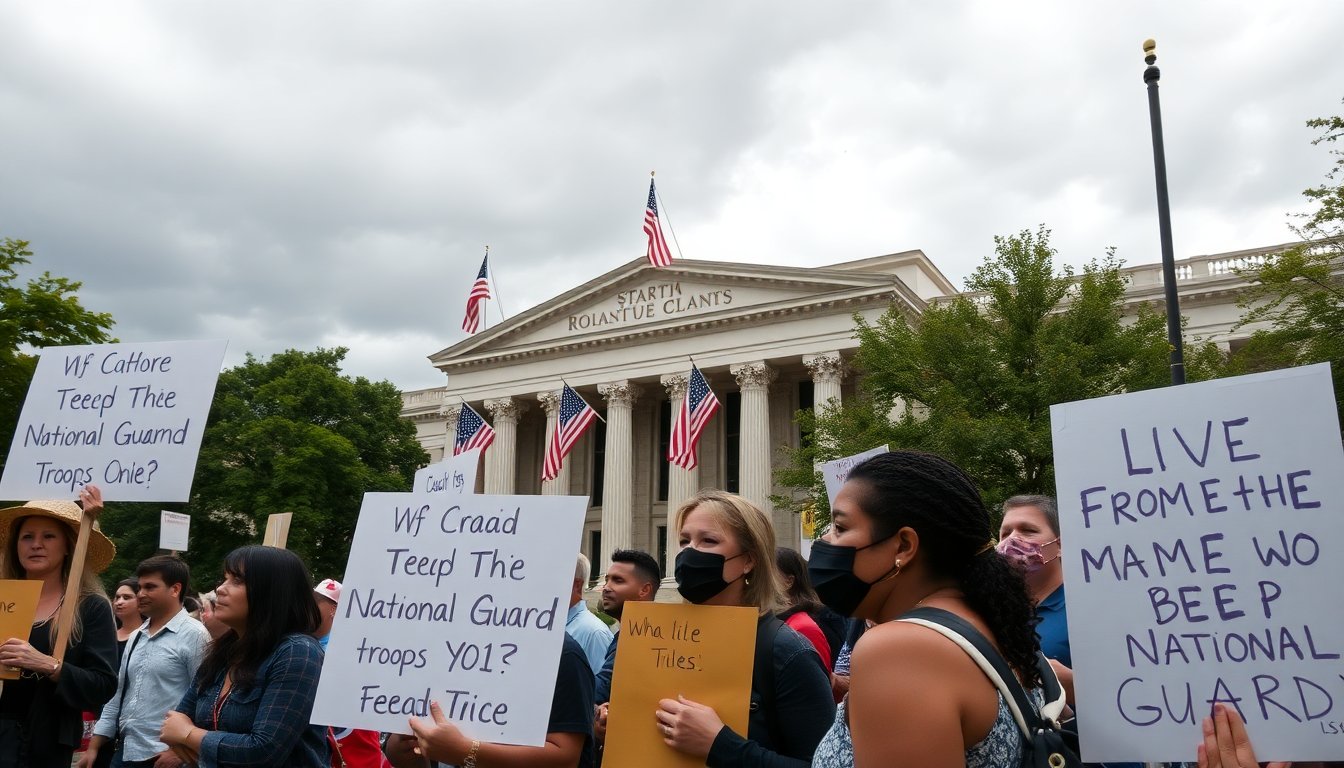Table of Contents
In a significant legal development, a judge has intervened to block President Trump’s administration from dispatching National Guard troops to Illinois. This ruling follows rising tensions and legal challenges from officials in both Illinois and Oregon, who question the constitutionality and necessity of such deployments.
The controversy surrounding the National Guard’s use highlights broader concerns regarding federal authority and state sovereignty. As states address public safety and unrest, the federal government’s role in deploying military forces has become a contentious issue.
The facts
Officials in Illinois and Oregon have voiced strong opposition to the proposed troop movements. They argue that the deployment undermines state authority and could lead to unnecessary militarization of civilian life. Such actions raise questions about the limits of federal power in matters typically handled at the state level.
Local leaders in Illinois worry that the presence of National Guard troops may escalate tensions rather than alleviate them. This concern is echoed by citizens who are apprehensive about military personnel in their communities. The situation reflects a broader national debate on the military’s role in domestic affairs.
The consequences
The deployment of the National Guard serves as a double-edged sword. It can provide necessary support during emergencies but may also represent an overreach of federal power. The judge’s ruling underscores the delicate balance between maintaining order and respecting state autonomy.
Legal experts suggest that ongoing disputes could set significant precedents regarding state and federal relations. The outcome may redefine the deployment of military resources within the United States and clarify the legal boundaries of such actions.
Public response and future implications
Public reaction to the court’s decision has been mixed. Some view the ruling as essential for protecting civil liberties and ensuring local governments maintain control over law enforcement. Others fear that lacking military support might lead to increased unrest.
As discussions continue, the future role of the National Guard in domestic issues remains uncertain. With the judge’s temporary block, the Trump administration must reconsider its strategy and the implications of its actions on public perception and state relations.
A pivotal moment for governance
This legal battle represents a crucial moment in the ongoing discourse surrounding governance in the United States. As the nation navigates complex issues of authority, safety, and civil rights, the decisions made in the coming weeks will shape the future landscape of state and federal relations.
The outcome of this case may resonate beyond Illinois and Oregon, potentially influencing how future administrations approach military resource deployment in civilian contexts. It highlights the necessity of careful consideration when balancing security needs against the preservation of democratic values.


